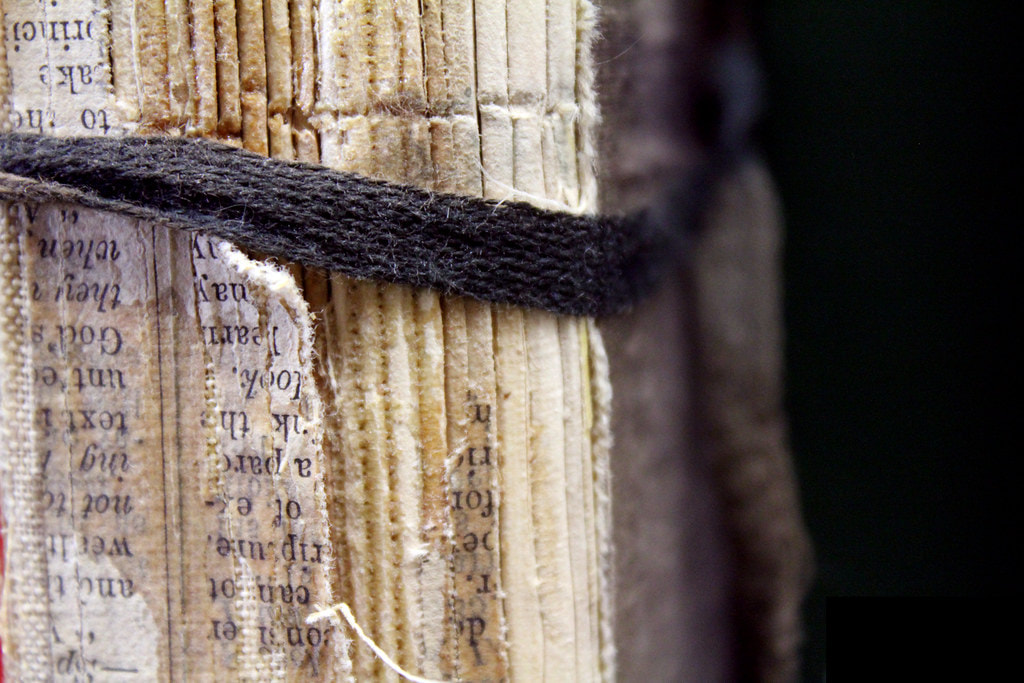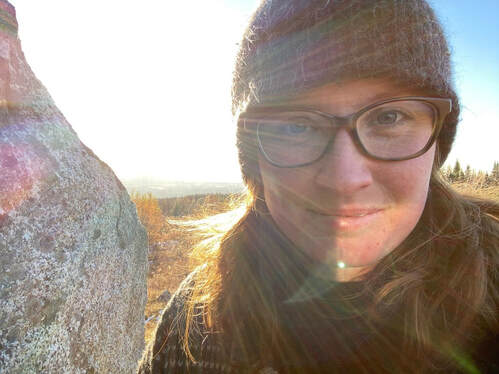|
In the SoundCloud recording below, collective.aporia founder Shawnie Hamer gives a reading of today's Aquarius full moon in Leo, a tarot reading, and reads from CA Conrad's While Standing in Line for Death (Wave Books).
Tarot Reading | 5 of Swords Rev. & 6 of Swords
Recording Script:
Other references:
Chani Nicholas Sarah Vrba Seventy Eight Degrees of Wisdom by Rachel Pollack Rider-Waite Tarot Mary El Tarot About the Author
Shawnie Hamer (she/her) was born in the heat & dust of Bakersfield, CA. Her first book, the stove is off at home (Spuyten Duyvil, 2018) is an experimental art & poetry book curated through a community ritual that focused on the identification & exorcism of trauma. Hamer is the founder of collective.aporia, & a co-conspirator of the off.collective. She proudly received her MFA from the Jack Kerouac School of Disembodied Poetics at Naropa University where she was able to befriend the most inspiring group of artists she's ever met. Her writing can most recently be found in publications such as More Revolutionary Letters: A Tribute to Diane de Prima, Entropy Mag, South Broadway Ghost Society & Tiny Spoon Lit Mag.
0 Comments
From Our Facilitators: Close / Bond / Hold: Proximities and Enclosures in English by Honora Spicer7/22/2021 Close, bond, hold. What do you think of when you hear these words? What positions do you picture your body taking? Or perhaps, how do you picture another body in relation to your own? These are each words that have to do with ways that we move our bodies. In investigating histories of enclosure of common land, I became curious about a series of words in English which speak to many scales of proximity, from the position of our bodies through to actions of the state. Enclosure can be defined as, “the action of converting pieces of common land into private property.” Close is a Middle English word which came from Old French and Latin, meaning, "Of proximity in space, time, form or state. The primary notion is that of having intervening space or spaces closed up, whereby the parts are in immediate contact with each other or near each other" (A.II.). This is a word that has to do with how bodies move and are positioned. I love this next definition, which has a poetic quality. This is straight from the Oxford English Dictionary: "As near as can be, very near. Especially with stand, sit, lie, stick, cling, keep, hold, press, etc. or with verbs of motion, as come, bring, etc." (B.1.). In Scottish, close has been used to mean constantly (ie. close in time), another proximity between a place and a time word. A ‘close’ as a noun has also been used to describe delineated, confined land (n.1). When we look at the history of close as a verb, to enclose becomes a very different side of this grouping of meanings. "To shut up in a building; to seclude, imprison" (v.2.a.), to restrict movement, to come to an end, to encompass, shut up (3.a.). The very first definition of close as a verb, I. 1. a., "To stop up (an opening or channel) so that it ceased to be open or to allow of passage. Where the opening is provided with a gate, door or lid, turning on hinges or sliding, to close the opening." This word circles connections in English between divisions in space and divisions in time. To close is a conclusion, termination; closing of a speech/ argument, conclusion of a musical phrase, setting in of darkness/ night (n.2.). I'm fascinated by all these intersections between this word which has connotations of intimacy and proximity, and also connotations of being 'bound' (v.4). That led me directly to another word that likewise straddles meanings between intimacy in English and boundary: the word ‘bond.’ One of the most recent definitions added to the dictionary in 1993 defines uses in psychology in the 1970s: 7.b. "To form an emotional or psychological bond with a person (especially one's child) or social group." A much earlier definition of bond, which this social and psychological definition draws from metaphorically, is "To bind or connect together (bricks, stones, or different parts of a structure) by making one overlap and hold to another, so as to give solidity to the whole" (n.1.a). As a noun, some minor meanings are a covenant between two or more persons (n.8.b.), in English law: a deed which binds the obligor to pay a sum of money (III.9.a.), and it's also used as "A metallic connection between conductors forming part of an electric circuit" (n.13.d.). This sense of affiliation, and a sense of completion through connection. Again, when we go to the primary meaning of this noun, we find the oldest usage of all. "Anything with which one's body or limbs are bound in restraint of personal liberty; a shackle, chain, fetter, manacle" (n.1. I. 1. a.). An 1804 book, Animal Biography, included the line, "As soon as the parts of the animal, within the shell of the chrysalis, have acquired strength sufficient to break the bonds that surround it." Bond becomes this natural or unnatural casing and restraint— confinement, imprisonment, custody. In Milton's 1667 Paradise Lost, there's a line "to endure Exile...or bonds, or pain," bond taking a parallel construction to pain. In a figurative sense, bond is "any circumstance that trammels or takes away freedom of action; a force which enslaves the mind through the affections or passion" (n.II.5.) and at the same time is "A uniting or cementing force or influence by which a union of any kind is maintained" (n.II.7.a.). I think this is essential to our understanding of how English has been used and formed as a language of conquest. Each of these words is indicating a fissure within language. Words relating to intimacy and interdependence take the same shape within our mouths as words relating to confinement, and the imperative of separation. In 1690, John Locke wrote in an Essay Concerning Human Understanding: "Speech being the great Bond that holds Society together." In this sense, what I hear is speech as this bond, this intimacy, this closeness, and possible conveyance, as well as this enclosure and limitation that is used as a mechanism of restraint. It's within this territory that I hear certain contemporary documentary poets working, through engaging techniques that identify language-enclosures, hearing underlying doublings, and re-ordering proximities. Poet Layli Long Soldier describes the poem Whereas, which redacts and intervenes the 2009 Congressional Resolution of Apology to Native Americans: "I removed from that national document...its hold on our spiritual life, our beliefs" (quoted in Susan Briante’s Defacing the Monument). Here, another word arises in the mode of close and bond— the hold. Bond, bondage, and hold are words that have deep roots in the US nation state as being utilized to describe many forms of confinement. As David Neimon says in a Between the Covers interview with Long Soldier, her work is making "a space in language for unlanguageable things,” and indicating ways in which words held in the wrong spaces and the wrong mouths can be appropriated violently. Documentary poetry offers ways into and beyond noticing these language-enclosures, in seeking means of holding words differently, removing them from a hold. Sign up for Honora's upcoming August Workshop |
Authorcollective.aporia Archives
May 2023
Categories
All
© 2019-2021 collective.aporia
|
||||||










 RSS Feed
RSS Feed
